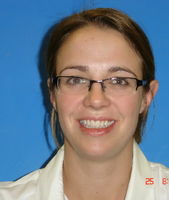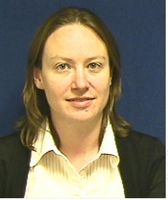Central Auckland > Public Hospital Services > Te Whatu Ora – Health New Zealand Te Toka Tumai Auckland >
Infectious Diseases | Auckland | Te Toka Tumai | Te Whatu Ora
Public Service, Infectious Diseases
Description
Our mission is to provide excellent care in the prevention, diagnosis, and treatment of patients with infections;
To uphold the principles of Te Tiriti;
To strive for equitable outcomes for Māori and Pacific patients with infections;
To work collegially to promote the judicious use of antimicrobials to achieve excellent outcomes for our patients in the hospital and wider community.
| › | HIV infection |
| › | infections after surgery |
| › | travel associated infections such as malaria, dengue and typhoid |
| › | tuberculosis involving organs other than the lungs |
| › | infections after organ/bone marrow transplants or in people whose immune system is suppressed for other reasons |
| › | infections that will require prolonged intravenous antibiotic treatment that we can often arrange to give at home – OPIVA service. |
Consultants
-

Dr Simon Briggs
Infectious Diseases Physician
-

Dr Annabelle Donaldson
Infectious Disease Physician
-

Dr Rupert Handy
Infectious Disease Physician
-

Dr Mark Hobbs
Infectious Disease Physician/Clinical Director
-

Dr Joan Ingram
Infectious Diseases Physician
-

Dr Rebekah Lane
Infectious Disease Physician
-

Dr Mitzi Nisbet
Infectious Diseases & Respiratory Physician
-

Dr Stephen Ritchie
Infectious Diseases Physician
Fees and Charges Description
Persons not ordinarily resident in New Zealand will be required to pay the full cost of their treatment. If you are not a New Zealand Resident, or were not born in New Zealand, please bring your passport to your appointment.
Procedures / Treatments
What to expect? If your general practitioner (GP) feels you require an urgent assessment for an infectious disease problem they will discuss this with one of the infectious diseases doctors and you will be seen at Auckland City Hospital. One of the infectious diseases doctors will ask you a large number of questions and examine you. It is likely you will have a number of tests performed that may include blood tests, a urine test and x-rays. You may need to stay in hospital for further tests and treatment. During your hospital stay the doctors looking after you will carefully explain what they think is causing your illness and what tests and treatment you will require. You will be able to ask questions at any time during your stay. At the time of discharge from hospital your GP will receive a letter informing them of your diagnosis and what further tests, treatment and follow up will be required. You may need to be seen by the infectious diseases service in the outpatient clinic following your discharge from the hospital.
What to expect? If your general practitioner (GP) feels you require an urgent assessment for an infectious disease problem they will discuss this with one of the infectious diseases doctors and you will be seen at Auckland City Hospital. One of the infectious diseases doctors will ask you a large number of questions and examine you. It is likely you will have a number of tests performed that may include blood tests, a urine test and x-rays. You may need to stay in hospital for further tests and treatment. During your hospital stay the doctors looking after you will carefully explain what they think is causing your illness and what tests and treatment you will require. You will be able to ask questions at any time during your stay. At the time of discharge from hospital your GP will receive a letter informing them of your diagnosis and what further tests, treatment and follow up will be required. You may need to be seen by the infectious diseases service in the outpatient clinic following your discharge from the hospital.
You may need to be seen by the infectious diseases service in the outpatient clinic following your discharge from the hospital.
What to expect? If your general practitioner (GP) feels you require a non urgent assessment you will be referred to our outpatient clinic. An appointment will be scheduled for you with one of our doctors and a letter with appointment details will be sent to you. Referrals are given priority depending on the information in the referral letter. Average waiting times for an appointment range from 1-2 weeks for the most urgent referrals to three months for the least urgent referrals. When you receive your appointment letter, please confirm your appointment through the Outpatient Clinics Contact Centre using the numbers listed within the contact details section. Hearing and/or speech impaired patients are welcome to confirm their appointment via email. Please arrive in the department 15 minutes before your appointment. Every effort will be made to keep to the appointment time, but delays may be experienced. Bring the following with you to the appointment: - a list of the medications you are taking - any x-rays or other medical information normally kept by you at home that may be relevant to this appointment. (You do not need to seek this information from your GP or other doctors.) Should an interpreter be required for you because you do not speak English as a first language, the interpreter will be arranged prior to your appointment. At your outpatient clinic appointment one of the infectious diseases doctors will ask you a large number of questions and examine you. It is likely you will have a number of tests performed which may include blood tests, a urine test and x-rays. The doctor seeing you will carefully explain what they think is causing your illness and whether you require further tests or treatment. You will be able to ask any questions you have at this time. You may need to be seen again in the infectious diseases clinic for further review. Your general practitioner (GP) will receive a letter informing them of your diagnosis and what further tests, treatment and follow up will be required.
What to expect? If your general practitioner (GP) feels you require a non urgent assessment you will be referred to our outpatient clinic. An appointment will be scheduled for you with one of our doctors and a letter with appointment details will be sent to you. Referrals are given priority depending on the information in the referral letter. Average waiting times for an appointment range from 1-2 weeks for the most urgent referrals to three months for the least urgent referrals. When you receive your appointment letter, please confirm your appointment through the Outpatient Clinics Contact Centre using the numbers listed within the contact details section. Hearing and/or speech impaired patients are welcome to confirm their appointment via email. Please arrive in the department 15 minutes before your appointment. Every effort will be made to keep to the appointment time, but delays may be experienced. Bring the following with you to the appointment: - a list of the medications you are taking - any x-rays or other medical information normally kept by you at home that may be relevant to this appointment. (You do not need to seek this information from your GP or other doctors.) Should an interpreter be required for you because you do not speak English as a first language, the interpreter will be arranged prior to your appointment. At your outpatient clinic appointment one of the infectious diseases doctors will ask you a large number of questions and examine you. It is likely you will have a number of tests performed which may include blood tests, a urine test and x-rays. The doctor seeing you will carefully explain what they think is causing your illness and whether you require further tests or treatment. You will be able to ask any questions you have at this time. You may need to be seen again in the infectious diseases clinic for further review. Your general practitioner (GP) will receive a letter informing them of your diagnosis and what further tests, treatment and follow up will be required.
Referrals are given priority depending on the information in the referral letter. Average waiting times for an appointment range from 1-2 weeks for the most urgent referrals to three months for the least urgent referrals.
Our mission is to work in partnership with people living with HIV and their communities to foster resilience and independence aimed at improving their quality of life and mana. We strive to provide a manaakitanga rich service by welcoming and supporting our patients to feel valued and working to eliminate the stigma and discrimination associated with HIV. This team consists of a Nurse Practitioner, 3 Nurse Specialists and a Social Worker who provide a free, confidential service to adults and children affected by HIV, Monday - Friday (9am - 5pm). Community HIV Team: Phone: (09) 375 7077 confidential service (direct dial). The service is very much patient-directed and is available to people in hospital, the community and at outpatient clinics. The aims of the team are: › to educate about HIV infection › to help reduce admissions to hospital › to help patients understand how best to take their medications › to provide a link between specialists and their patients › to support patients who feel isolated and alone with this illness › to help patients with applications for Work and Income, Housing and Community Services benefits and with immigration applications › to refer patients for ongoing counselling, and to any other appropriate services. Community HIV Team aims to reduce hospital admissions by continuing education, supporting medication adherence, and assisting HIV infected patients to take responsibility for their own health, as well as coordinating and linking them with appropriate support networks. What to expect? If you have HIV infection you may be referred to the Community HIV Team by your general practitioner (GP), your infectious diseases doctor or you may choose to contact the Community HIV Team directly by using the direct dial number listed above. You may also contact the Community HIV Team if you are affected by HIV as a partner or a family member of a patient with HIV infection or if you are concerned you may have HIV infection and are not sure what further action should be taken. After the referral is received the Community HIV Team will contact you. You will meet a Community HIV Team nurse specialist or social worker who will explain the care you can expect as a patient of the Infectious Diseases service. They will check your knowledge of HIV infection and provide further information or resources as necessary. They will talk to you about your personal situation and concerns, and will explain clinic visits and blood tests required. The social worker is available to help you with any immigration, housing or WINZ issues and any other related matters.
Our mission is to work in partnership with people living with HIV and their communities to foster resilience and independence aimed at improving their quality of life and mana. We strive to provide a manaakitanga rich service by welcoming and supporting our patients to feel valued and working to eliminate the stigma and discrimination associated with HIV. This team consists of a Nurse Practitioner, 3 Nurse Specialists and a Social Worker who provide a free, confidential service to adults and children affected by HIV, Monday - Friday (9am - 5pm). Community HIV Team: Phone: (09) 375 7077 confidential service (direct dial). The service is very much patient-directed and is available to people in hospital, the community and at outpatient clinics. The aims of the team are: › to educate about HIV infection › to help reduce admissions to hospital › to help patients understand how best to take their medications › to provide a link between specialists and their patients › to support patients who feel isolated and alone with this illness › to help patients with applications for Work and Income, Housing and Community Services benefits and with immigration applications › to refer patients for ongoing counselling, and to any other appropriate services. Community HIV Team aims to reduce hospital admissions by continuing education, supporting medication adherence, and assisting HIV infected patients to take responsibility for their own health, as well as coordinating and linking them with appropriate support networks. What to expect? If you have HIV infection you may be referred to the Community HIV Team by your general practitioner (GP), your infectious diseases doctor or you may choose to contact the Community HIV Team directly by using the direct dial number listed above. You may also contact the Community HIV Team if you are affected by HIV as a partner or a family member of a patient with HIV infection or if you are concerned you may have HIV infection and are not sure what further action should be taken. After the referral is received the Community HIV Team will contact you. You will meet a Community HIV Team nurse specialist or social worker who will explain the care you can expect as a patient of the Infectious Diseases service. They will check your knowledge of HIV infection and provide further information or resources as necessary. They will talk to you about your personal situation and concerns, and will explain clinic visits and blood tests required. The social worker is available to help you with any immigration, housing or WINZ issues and any other related matters.
Our mission is to work in partnership with people living with HIV and their communities to foster resilience and independence aimed at improving their quality of life and mana.
We strive to provide a manaakitanga rich service by welcoming and supporting our patients to feel valued and working to eliminate the stigma and discrimination associated with HIV.
| › | to educate about HIV infection |
| › | to help reduce admissions to hospital |
| › | to help patients understand how best to take their medications |
| › | to provide a link between specialists and their patients |
| › | to support patients who feel isolated and alone with this illness |
| › | to help patients with applications for Work and Income, Housing and Community Services benefits and with immigration applications |
| › | to refer patients for ongoing counselling, and to any other appropriate services. |
Community HIV Team aims to reduce hospital admissions by continuing education, supporting medication adherence, and assisting HIV infected patients to take responsibility for their own health, as well as coordinating and linking them with appropriate support networks.
What to expect?
If you have HIV infection you may be referred to the Community HIV Team by your general practitioner (GP), your infectious diseases doctor or you may choose to contact the Community HIV Team directly by using the direct dial number listed above. You may also contact the Community HIV Team if you are affected by HIV as a partner or a family member of a patient with HIV infection or if you are concerned you may have HIV infection and are not sure what further action should be taken.
After the referral is received the Community HIV Team will contact you. You will meet a Community HIV Team nurse specialist or social worker who will explain the care you can expect as a patient of the Infectious Diseases service. They will check your knowledge of HIV infection and provide further information or resources as necessary. They will talk to you about your personal situation and concerns, and will explain clinic visits and blood tests required.
The social worker is available to help you with any immigration, housing or WINZ issues and any other related matters.
Our mission is to provide patient-centred care, optimise patient recovery, and enhance hospital capacity by supporting patients receiving outpatient antimicrobial therapy and their whanau. The OPIVA Service provides assessment, training and ongoing support for patients requiring an extended period (usually 2-6 weeks) of intravenous antibiotic treatment. Patients requiring this type of treatment can often be discharged home, avoiding weeks of hospitalisation, and return to work or study. The OPIVA Service collaborates closely with the District Nursing Services. Our aim is to provide you with the necessary knowledge, skills and support to be able to give your antibiotics in the comfort of your own home. We will ensure that you are confident about giving your antibiotics before you are discharged from hospital. »What happens first? You will meet the OPIVA nurse specialist who will visit you on your ward and discuss the service with you. You will be given an instruction booklet with details of the treatment and its course. The OPIVA nurse will show you how to draw up your antibiotics and flush your line before and after administering the antibiotics. You will be surprised at how quickly you learn. The OPIVA nurse will monitor your progress until you can safely manage at home. »What happens next? When you feel confident about giving your antibiotics and the OPIVA team is satisfied that you are ready to be discharged, we will organise the supplies you will need to take home. We will arrange for the District Nursing Service to visit you at home to change your PICC (Peripherally Inserted Central Catheter) dressing and to make sure that everything is going well. The District Nurse will then arrange further visits with you. You will also be asked to attend an outpatient clinic regularly to monitor your progress. Here you will be seen by an infectious diseases doctor and the OPIVA nurse specialist. A letter documenting your care and progress will be sent to your GP after each clinic visit. We also ask that you have a blood test each Monday. »What happens after treatment? Once you have finished your course of antibiotics your intravenous line will be removed. This is a quick procedure that will take a couple of minutes. In some cases you may be asked to take oral antibiotics and have further blood tests. We will continue to see you in clinic until you are ready to be discharged from our follow up care. »Who do I contact for help? You will be given contact numbers for the OPIVA nurse and the District Nursing Service.
Our mission is to provide patient-centred care, optimise patient recovery, and enhance hospital capacity by supporting patients receiving outpatient antimicrobial therapy and their whanau. The OPIVA Service provides assessment, training and ongoing support for patients requiring an extended period (usually 2-6 weeks) of intravenous antibiotic treatment. Patients requiring this type of treatment can often be discharged home, avoiding weeks of hospitalisation, and return to work or study. The OPIVA Service collaborates closely with the District Nursing Services. Our aim is to provide you with the necessary knowledge, skills and support to be able to give your antibiotics in the comfort of your own home. We will ensure that you are confident about giving your antibiotics before you are discharged from hospital. »What happens first? You will meet the OPIVA nurse specialist who will visit you on your ward and discuss the service with you. You will be given an instruction booklet with details of the treatment and its course. The OPIVA nurse will show you how to draw up your antibiotics and flush your line before and after administering the antibiotics. You will be surprised at how quickly you learn. The OPIVA nurse will monitor your progress until you can safely manage at home. »What happens next? When you feel confident about giving your antibiotics and the OPIVA team is satisfied that you are ready to be discharged, we will organise the supplies you will need to take home. We will arrange for the District Nursing Service to visit you at home to change your PICC (Peripherally Inserted Central Catheter) dressing and to make sure that everything is going well. The District Nurse will then arrange further visits with you. You will also be asked to attend an outpatient clinic regularly to monitor your progress. Here you will be seen by an infectious diseases doctor and the OPIVA nurse specialist. A letter documenting your care and progress will be sent to your GP after each clinic visit. We also ask that you have a blood test each Monday. »What happens after treatment? Once you have finished your course of antibiotics your intravenous line will be removed. This is a quick procedure that will take a couple of minutes. In some cases you may be asked to take oral antibiotics and have further blood tests. We will continue to see you in clinic until you are ready to be discharged from our follow up care. »Who do I contact for help? You will be given contact numbers for the OPIVA nurse and the District Nursing Service.
Our mission is to provide patient-centred care, optimise patient recovery, and enhance hospital capacity by supporting patients receiving outpatient antimicrobial therapy and their whanau.
Our aim is to provide you with the necessary knowledge, skills and support to be able to give your antibiotics in the comfort of your own home. We will ensure that you are confident about giving your antibiotics before you are discharged from hospital.
The OPIVA nurse will show you how to draw up your antibiotics and flush your line before and after administering the antibiotics. You will be surprised at how quickly you learn. The OPIVA nurse will monitor your progress until you can safely manage at home.
Document Downloads
- Outpatients Clinics Map (PDF, 117.8 KB)
Visiting Hours
Other
Website
Contact Details
Auckland City Hospital
Central Auckland
Website
Outpatient Clinics Contact Centre:
(09) 638 0400 or 0800 728 436 (if you live outside of Auckland)
7:00am - 10:30pm weekdays
8:00am – 6:00pm weekend
Infectious Diseases Administration:
-
Phone
(09) 307 4949 ext.22970 (Vai Westholm)
Email: IDservice@adhb.govt.nz
OPIVA Nurse
-
Phone
(09) 307 4949 ext 29165 (virtual)
Email: OPIVA@adhb.govt.nz
Community HIV Team:
-
Phone
(09) 375 7077 confidential service (DDI)
Email: HIV@adhb.govt.nz
2 Park Road
Grafton
Auckland 1023
Street Address
2 Park Road
Grafton
Auckland 1023
Postal Address
Private Bag 92 024
Auckland Mail Centre
Auckland 1142
Was this page helpful?
This page was last updated at 2:15PM on February 13, 2024. This information is reviewed and edited by Infectious Diseases | Auckland | Te Toka Tumai | Te Whatu Ora.

